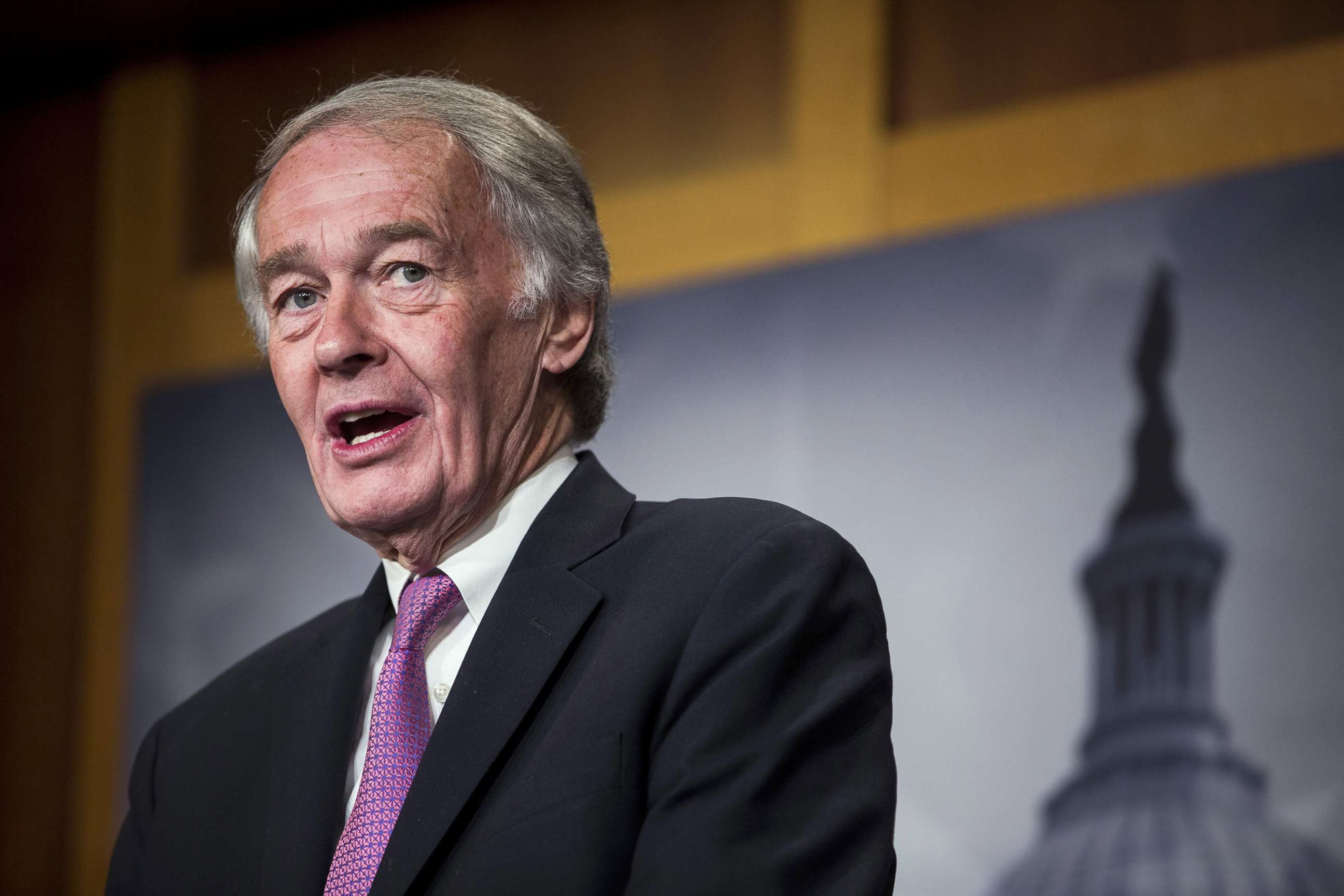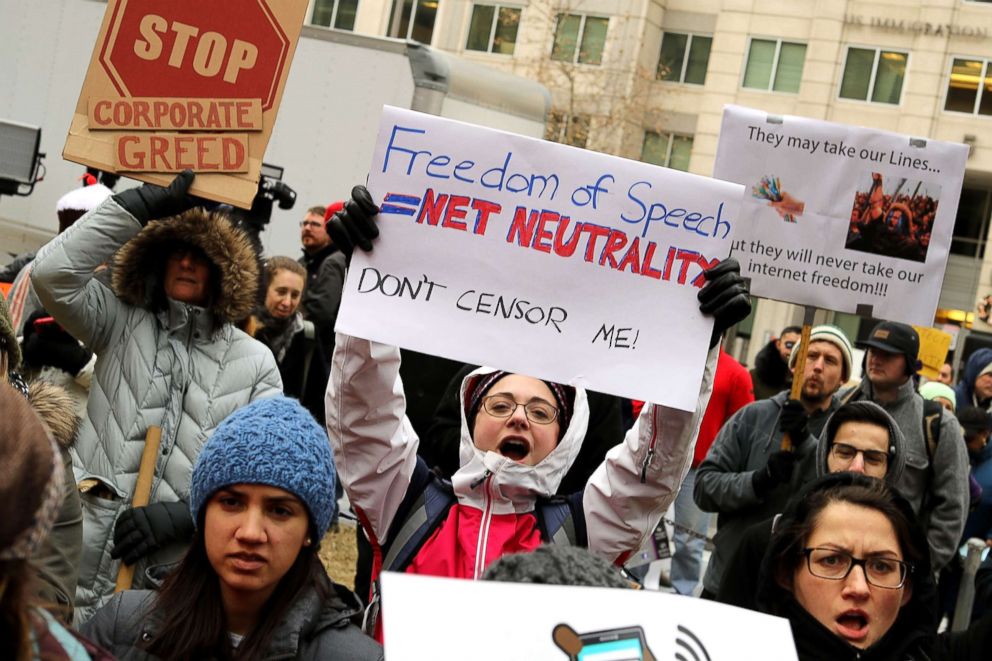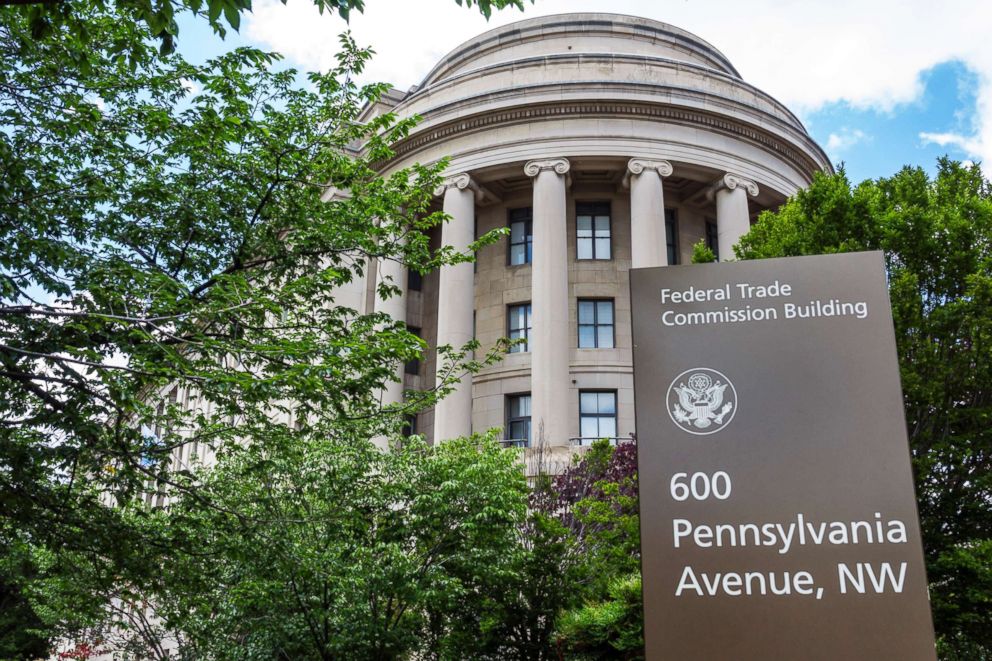In last-ditch effort to save net neutrality, lawmakers question FTC regulatory capabilities
Democrats try to save net neutrality ahead of Senate vote on Wednesday.
Democratic lawmakers are mounting a last-ditch effort to save net neutrality ahead of a crucial Senate vote on Wednesday, citing concerns that network providers could implement unfair business practices as the internet’s regulatory agency shifts from the Federal Communications Commission (FCC) to the Federal Trade Commission (FTC).
The FCC’s Internet Freedom Order, a new FCC rule meant to undo Obama-era internet regulations scheduled to take effect on June 11, will repeal net neutrality rules and make the FTC responsible for oversight of the internet. The order has stoked the fears of consumers, as deregulation of internet service providers (ISPs) could allow monoliths like Verizon, Time Warner, and Comcast to “throttle,” or prioritize, different traffic across the internet. One could ultimately, for example, pay a premium to stream a movie online versus merely reading an article.
Under the Congressional Review Act (CRA), lawmakers have 60 legislative working days after a rule or regulation is implemented to review and repeal it, and Sen. Edward J. Markey, a Democrat from Massachusetts, is leading an effort to repeal the FCC’s Internet Freedom Order and reestablish net neutrality at the federal level, highlighting, among other issues, the FTC’s lack of “rulemaking authority.”
“If the FTC has jurisdiction and internet service providers do not support net neutrality protections, there’s nothing the FTC can do to stop internet service providers from setting up online fast and slow lanes,” Markey told ABC News. “The FTC is simply not equipped to protect the free and open internet. It lacks rulemaking authority and has limited tools for preventing blocking, throttling, and paid prioritization by internet service providers.”
Markey is not alone. His office says Wednesday’s effort to repeal the Internet Freedom Order is supported by every Senate Democrat, as well as Sen. Susan Collins, a Republican from Maine, putting the Senate vote to repeal net neutrality at a tie. If the Senate succeeds, the vote would then proceed to the House.

The CRA would require an additional majority in the House, which means 25 Republicans would have to vote in favor of the repeal if every Democrat voted favorably.
“We are working on getting the votes, and we’re optimistic that we can,” said Rep. Mike Doyle, D-Pa., when asked if the CRA majority vote could pose a hurdle.
If the House also repeals the rule, the rule would land on President Donald Trump’s desk for approval -- which, considering his designation of Ajit Pai as FCC Chairman in the first place, seems unlikely.
Under the new rules, the FCC would still watch over network providers to monitor how they disclose their business practices, but the FTC will regulate how internet service providers act toward each other and toward consumers. The FTC “will investigate and take enforcement action as appropriate against Internet service providers for unfair, deceptive, or otherwise unlawful practices,” according to a December 2017 “Memorandum of Understanding.”
Mark Cooper, a senior fellow at the Consumer Federation, questions whether the FTC is up to the task of regulating America’s networks.

“They’re not a regulatory agency,” he said. “It’s very hard for them to write rules. Anti-trust is very often after the fact.”
The two agencies, Cooper said, are tasked with expressly different roles: The FCC enacts primarily preventative measures, while the FTC enacts primarily punitive measures.
The distinction is a crucial one, according to Tom Wheeler, a former FCC Chairman during the Obama administration.
“The FTC can act after the horse has left the barn, or after the barn has been burned down,” Wheeler said. “I think one of the main reasons the ISPs want it at the FTC is that it’s ex-poste [after-the-fact], rather than ex-ante [before-the-fact], and second of all, because the FTC has to deal with 100 percent of the economy, everything from prescription drugs to bleach labeling... the FTC will be otherwise occupied.”
In a November 2017 speech at the R Street Institute, a self-described “free-market think tank” in Washington, D.C., Maureen Ohlhausen, acting FTC chairman, suggested that consumer choice could effectively regulate network providers.
“Expect a public backlash against any ISP that degrades applications or limits access to content that its subscribers demand,” Olhausen said.
Internet service providers, for their part, see the FTC as the appropriate agency to govern their business.

“Policing complex and highly technical industries has always been the FTC’s bread and butter, and the agency is built to evolve alongside the businesses it oversees,” said USTelecom, the self-described “leading trade association” for broadband service providers in the United States, in a statement. “With the FTC back at the helm, and appetite growing in Congress to make clear this enforcement authority is permanent and must be consistent across consumers’ online experience, Americans should feel growing confidence that a proven cop is on the beat to protect their interests across the digital world.”
Former FCC chairman Wheeler contends, however, that the internet service providers are in favor of this change because it will allow them to throttle or prioritize internet traffic at will, as long as their terms of service or user agreements say so upfront.
As long as internet service providers disclose that they plan to prioritize certain types of content over others, he said, the FTC cannot punish them. Wheeler noted that both Verizon and Comcast have argued before courts for the right to do so.
“That’s what [is] at the heart of this thing,” Wheeler said.
At the end of her November 2017 speech, Ohlhausen explained customers will ultimately decide the future of net neutrality under the FTC.
“The FCC’s repeal of those regulations doesn’t mean that neutral practices will disappear,” Ohlhausen said. “Indeed, where consumers desire neutrality, they’ll get it through market competition, facilitated by the FCC’s transparency rules and by antitrust and consumer protection law enforced by the FTC, DOJ, state attorney generals, and private plaintiffs.”




